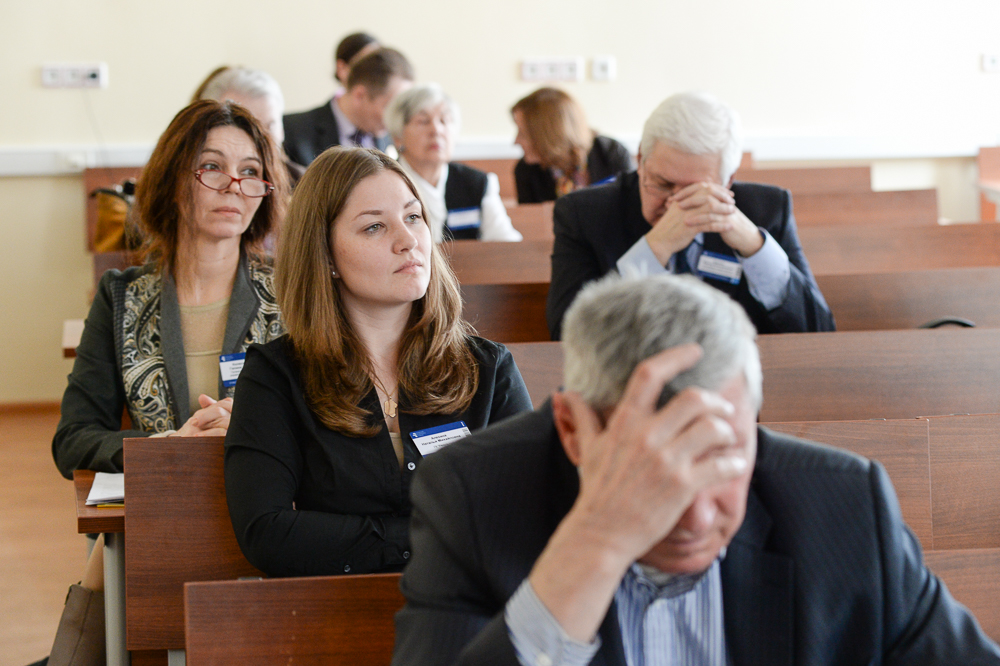
Published: March 30th, 2017
A critical situation has developed in the vast majority of Russian regions. The colossal gap between Moscow and other subjects of the Russian Federation only increases, people are forced to leave their native cities to make a living. The participants of the round table proposed the recipe for anti-crisis regional policy "Crisis in Russian regions: the search for new solutions to old problems". Yury Krupnov, Chairman of the Supervisory Board of the Institute of Demography, Migration and Regional Development, moderated the discussion.
Participants in the discussion identified the main problems: the concentration of all financial activity in Moscow, which is why most of the regions are in a state of catastrophic underfunding. Regions are not interested in the development of processes; they are interested in selling something.
In addition, there are no adequate jobs; people do not have the opportunity to earn money systematically. A huge number of young people go to the capital not just to realize their unique characteristics, but also in order to earn. The result is a "depopulation" of regions.
Another problem is the colossal debt burden of the regions. This debt burden does not allow the regions to develop. All these problems are caused by the fact that the focus of activity and life is not concentrated at the local level, but exclusively in megacities, primarily in Moscow.
Yuri Krupnov, member of the federal council of the All-Russian Party “Partia Dela”, chairman of the regional branch in the Kostroma region, chairman of the supervisory board of the nonprofit organization Institute of Demography, Migration and Regional Development, identified two main theses: redistribution to the regional level, Of development.
Petrov Vladimir Ivanovich, the first chairman of the Government of the Altai Republic, agreed with the opinion of Yuri Krupny, focusing on the problems of his region as a territory of noospheric development. Vladimir Ivanovich told about the prospects of development of the Altai Republic. "Across the world, including our country, there is a need for a radical restructuring of the entire education system, and training specialists who will be able to translate the economy of our country or regions into a path of long-term environmentally sustainable development," the expert concluded..
Sorokozherdiev Vasiliy Vasilievich, president of the Kuban Foundation for Scientific and Educational Initiatives, described the current regional economic policy in the context of overall economic policy. The expert sees examples of China and South Korea as successful examples of the national economy. "Unexpectedly, in the near future we expect a period of qualitative economic growth, and the potential for this growth in our country and regions exists," the expert concluded.
Vyacheslav Nikolayevich Egorov, general director of WagonProject LLC, chairman of the regional branch of the Party “Partia Dela” Pskov is convinced that in the regions there is a crisis of confidence in the existing authorities. "My concrete proposal is to go exactly in the way that we have outlined - to be nominated for all positions, to win all the elections that we will have - in municipal, rural settlements, in the regional assembly and so on, so that we can come to power and restore this trust , Which was lost by our predecessors, "the expert said.
On such important issues as the transport problem, the state of housing, social housing and public space, Fesenko Dmitry Evgenievich, the editor-in-chief of the magazine "Architectural Herald".
"From time to time we have a sociocultural pendulum swinging in the direction of neoclassicism, then modernism, and so on. In addition, this problem is involved in this mechanism of socio-cultural shifts. The public space is now completely uncharacteristic of its status. Moreover, this is a cosmetic thing, a vignette on the body of the city. We cover up acne with blush instead of treating cities, the settlement system, "the expert notes.
Gleb Vladimirovich Tyurin, director of the Institute for Social and Humanitarian Initiatives, talked about methods to combat the crisis in the regions. The most vivid example, according to the expert, was the experience of India, the country with the fastest growing economy in the world, where 300 million workers live. The success of the country's economy Tyurin sees in the creation of the Ministry of small industries. That is why capital flows to India. Thus, Tyurin noted, the main task is to provide as many people as possible with income.
The participants of the round table repeatedly stressed the need to create jobs of high degree of worthiness and to provide an opportunity to make a career in the region faster than in the capital. It is necessary to encourage only the most outstanding economic sectors, and also to introduce planning, first, economic life of the subjects, and not only bare economic profitability.
Latest news
07.05.2018 MEF-2018: debate "Cultural policy: between individual freedom and the interests of society?"
07.05.2018 MEF-2018: Conference No. 8
07.05.2018 MEF-2018: Conference No. 4
07.05.2018 MEF-2018: Conference No.3
07.05.2018 MEF-2018: Conference No. 2
07.05.2018 MEF-2018: Conference No.1
26.04.2018 McConnell Discusses Information Warfare
20.04.2018 MEF-2018: closing plenary session
17.04.2018 Mr. Freysinger: «Skripal’s case» for relationship between Russia und European Union?
